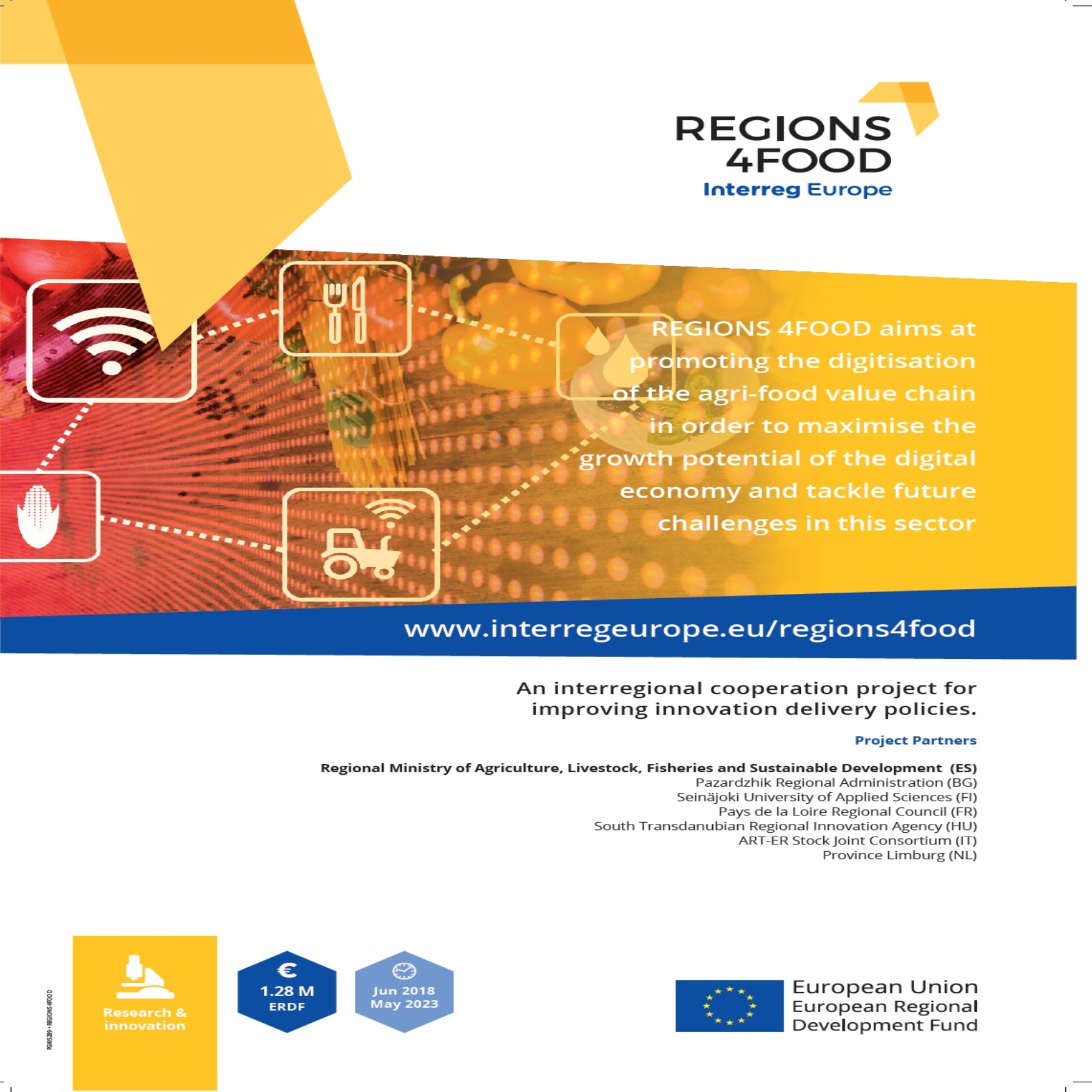The REGIONS 4FOOD Project is being developed in the framework of Interreg Europe Program 2014-2020 and is co-financed by ERDF Structural Funds. The aim of the project is to “better exploit ICTs potential and deliver innovation to agri-food industry and hence, smart progress and growth”. This is expected to be done through positive collaborative dynamics of the quadruple helix actors within regional innovation ecosystems and efficient public-private governance mechanisms, thus guiding the future agri-food policies and strategies and making recommendations in this sense. The regions involved in the project are Andalusia (ES), who is also the Lead Partner, Pays de la Loire (FR), South Ostrobothnia (FI), Emilia Romagna (IT), Limburg (NL), Pazardzhik (BG) and South Transdanubia (HU).
At this stage, the project is laying in its second phase where seven Action Plans defined by the involved regions in the project are in the process of implementation and looking forward to improving the Policy Instrument addressed by each partner in the framework of the project.
Generally, high responsibility of involved actors in the project is observed. There are also good prospects in terms of policy impact upon the territory and upon the framed political instruments selected by project partners according to their relevance in terms of innovation in the agri-food sector through digitization and sustainable smart development.
In terms of the outcomes reached so far, the definition of 6 Strategic Policy Recommendations to EU Digitization Strategies in the Agri-Food Value Chain are worth mentioning. This is the result of the joint efforts of all partners and their stakeholders, during the first 3 years of the project implementation. Thus, the six Strategic Policy Recommendations tackle issues related to the legal frameworks for data management, the promotion of digital transformation processes, the development of multidisciplinary research and training, the creation of innovations ecosystems and their consolidation, the promotion of technological solutions in the agri-food sector and boost the communication and awareness in agri-food sector.
Concerning the communication, lessons learned, and knowledge exchange carried out in the framework of REGIONS 4FOOD implementation, it portrays an increase of the project’s audience and constant search to generate greater synergies among stakeholders. It also broadens the project outcomes towards other regions and their innovation ecosystems.
As a result, all of these achievements and planned activities stand out the impact and driving effect of the REGIONS 4FOOD project to consolidate not only the digitization process of the agri-food sector but also to bring useful insights in terms of interregional and intraregional learning processes that represent good prospects for changes in the local policy context that all project partners aim in their regions.
